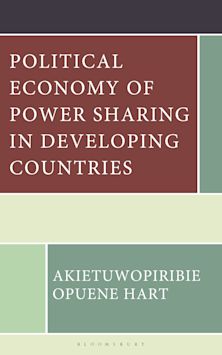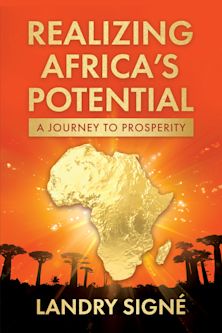- Home
- ACADEMIC
- International Development
- Development Economics and Emerging Economies
- The Resistible Rise of Market Fundamentalism
The Resistible Rise of Market Fundamentalism
Rethinking Development Policy in an Unbalanced World
The Resistible Rise of Market Fundamentalism
Rethinking Development Policy in an Unbalanced World
For information on how we process your data, read our Privacy Policy
Thank you. We will email you when this book is available to order
You must sign in to add this item to your wishlist. Please sign in or create an account
Description
“Stabilise, liberalise and privatise” has, since the debt crisis of the early 1980s, been the mantra chanted at developing countries by international financial institutions, donor countries and newspaper columnists with quasi-religious conviction. Policy debate has increasingly polarised into the rhetoric of extremes: trade liberalisers versus protectionists, cosmopolitan versus nationalist, the right-thinking versus the wrong-headed, and so on. In The Resistible Rise of Market Fundamentalism Richard Kozul-Wright and Paul Rayment expose the mix of selective evidence, mythical economic history, simplistic assumptions and opportunistic bias which comprise this prescription for economic development.
They argue that attempts to apply a universal model of development have not only met with little or no success but are dangerously at odds with democratic principles. Insisting on a ready-made, “one size fits all” model increases the risk of policy reactions that are likely to undermine the peace, prosperity and global integration that the G7 countries and the international organisations are seeking to promote and in which the developing countries seek to share. Instead, developing countries must be given the freedom to experiment, to develop their own policies and discover what works in their own, national circumstances. On this basis, Kozul-Wright and Rayment set out a pragmatic, constructive and more hopeful approach to development than the simplicities of market fundamentalists.
Table of Contents
Abbreviations - Preface and acknowledgements
1. The rise of market fundamentalism
Globalisation: What's in a name? - The neo-liberal revival - From neo-liberalism to market fundamentalism - The greatly exaggerated death of the nation state - Entry points
2. Back to the future? Globalisation in historical perspective
Introduction - Through the looking glass: Economic integration before World War I - Global divergence - Conclusions
3. Engines of growth? Trade and financial flows in an open world
Introduction - Trade liberalisation takes charge - The exaggerations and limits of "win-win" arguments - Trade liberalisation, adjustment costs and the myth of convergence - The liberalisation of international finance - The siren call of quick fixes: Shocks, cycles and crises in unregulated financial markets - Conclusions
4. Transnational corporations, foreign direct investment and the uneven geography of international production
Introduction - The spread of international production - Escaping the simplicities of conventional thinking - Lessons from success stories - Some warning signals - Conclusion
5. Globalisation revisited
Introduction - Catching up, falling behind and growing apart - Change in the policy climate: Investment trends since the debt crisis - Deindustrialisation and enclave development - Conclusions
6. Towards an alternative framework for development strategies
Introduction - Myths, biases and simple assumptions - Cumulative and interdependent factors of development - Developmental states - Democracy and economic development - Conclusions
7. Resisting market fundamentalism
Introduction - Democratic gradualism and policy space - Regaining policy space: Lessons from the Marshall Plan - Strengthening the profit-investment-export nexus - Reforming the global architecture
8. The conditions for a sustainable global order
Bibliography
Product details
| Published | 28 Jan 2008 |
|---|---|
| Format | Hardback |
| Edition | 1st |
| Extent | 176 |
| ISBN | 9781842776360 |
| Imprint | Zed Books |
| Dimensions | Not specified |
| Publisher | Bloomsbury Publishing |
About the contributors
Reviews
-
The Resistible Rise of Market Fundamentalism is one of the more intelligent and better-informed books about globalisation published so far. Mixing historical details with a strong grasp of the contemporary data, its commonsense political economy approach casts a clear light on the biases and asymmetries in todays globalisation process, challenges the neo-liberal dogma that there are no economic policy choices left to be made and boldly sets out the case for alternative development strategies. Read it if you really want to understand what is going on in the world economy.
Ha-Joon Chang, University of Cambridge
-
An insightful, timely and very welcome contribution to the ongoing debate on how to bring about a more equitable and balanced international economic order.
Rubens Ricupero, Fundação Armando Alvarez Penteado, São Paulo, formerly Secretary-General of UNCTAD
-
An incisive critique of orthodoxy and timely reminder of what development is all about
Thandika Mkandawire, United Nations Research Institute for Social Development (UNRISD)



































